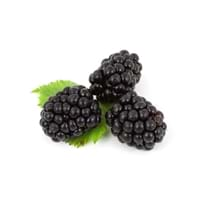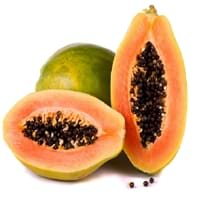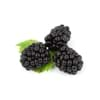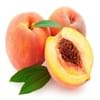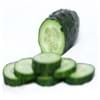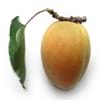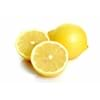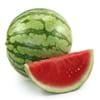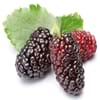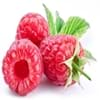Health Benefits
Cancer prevention, Heart care, Increases metabolic rate, Reduces stress, Treatment of dysentary, Treatment of skin Diseases
Arthritis prevention, Asthma treatment, Cancer prevention, Heart care, Prevents macular degeneration, Prevents rheumatoid
General Benefits
Digestive aid, Maintains healthy cholesterol level, Strengthens bones
Anti-inflammatory properties, Boosts immune system, Digestive aid, Healing of wounds, Maintains healthy cholesterol level, Strengthens bones
Skin Benefits
Hydrates skin, Skin rejuvenation, Skin revitalization
Anti-aging benefits, Hydrates skin, Skin revitalization, Treatment of acne, Treatment of dark spots
Hair Benefits
Promotes longer and healthier hair
Good conditioner, Promotes longer and healthier hair, Softening mask, Treatment of dandruff
Allergy Symptoms
Facial muscle tension, Pressure in sinus, Respiratory congestion, Runny nose, Sneezing, Tingling sensation in wrist and face
Abdominal pains, Carotenemia on excessive consumtion, Latex Allergy
Side Effects
Nausea, Vomiting, Might cause change of urine color
Allergic reaction, Skin problems, Possibly unsafe during pregnancy
Best Time to Eat
Best if taken as a breakfast (or empty stomach), As a snack in the late afternoon, Don't consume at night and before bed, Eat the fresh ones, avoid mixing with any other foods, don't eat after meal., Morning time (before lunch)
As a snack in the late afternoon, Don't consume at night and before bed, Don't eat after meal
Vitamin B5 (Pantothenic Acid)
Vitamin C (Ascorbic Acid)
Vitamin K (Phyllochinone)
Calories in Fresh Fruit with Peel
Not Available
Calories in Fresh Fruit without Peel
Not Available
Calories in Pie
Not Available
Type
Berry
Melon, Tree fruit
Season
Spring, Summer
All seasons
Varieties
Prime Ark, Prime Jim, Illini Hardy, Kiowa, Shawnee, Apache, Arapaho, Chester, Hull, Natchez, Navaho and Triple Crown and Von
Coorg Honey Dew, Pusa Dwarf, Pusa Giant, Pusa Majesty, Pusa Delicious, Pusa Dwarf, Solo, Ranchi, Taiwan-785 and Taiwan-786
Color
Purplish black
Orange, Yellow
Inside Color
Magenta
Orange
Taste
Juicy, Sweet
Luscious, Sweet
Origin
Asia, Europe, North America, South America
Mexico, Central America
Soil Type
Well-drained
Rocky, Sandy, Well-drained
Climatic Conditions
Dry, Warm to hot climate
Warm, Without frosts
Facts about
- There are around 2000 varieties of blackberries throughout the world.
- 80-85 degrees is the ideal temperature for its production.
- Leaves of blackberry tree are used to treat sore throats and mild inflammation of the gums.
- Papaya seeds show contraceptive effects in male monkeys.
- Their seeds are used as a replacement for black pepper in some nations due to peppery taste.
- Papaya is known by funny names like paw paw or papaw and the mamao.
Top Producer
United States of America
India
Other Countries
China, New Zealand, Serbia, South Africa
Brazil, Indonesia, Mexico, Nigeria
Top Importer
United States of America
United States of America
Top Exporter
Mexico
Mexico
Botanical Name
Rubus Fruticosus
Carica papaya
Synonym
Rubus Millspaughii or Rubus Laciniatus
Not Available
Subkingdom
Tracheobionta
Tracheobionta
Division
Magnoliophyta
Magnoliophyta
Class
Magnoliopsida
Magnoliopsida
Subclass
Rosidae
Dillenhidae
Order
Rosales
Brassicales
Family
Rosaceae
Caricaceae
Species
Rubus fruticosus
C. papaya
Generic Group
Rose
Papaya
Difference Between Blackberry and Papaya
We might think that Blackberry and Papaya are similar with respect to nutritional value and health benefits. But the nutrient content of both fruits is different. Blackberry and Papaya Facts such as their taste, shape, color, and size are also distinct. The difference between Blackberry and Papaya is explained here.
The amount of calories in 100 gm of fresh Blackberry and Papaya with peel is 43.00 kcal and Not Available and the amount of calories without peel is Not Available and 43.00 kcal respectively. Thus, Blackberry and Papaya belong to and category.These fruits might or might not differ with respect to their scientific classification. The order of Blackberry and Papaya is Rosales and Brassicales respectively. Blackberry belongs to Rosaceae family and Papaya belongs to Caricaceae family. Blackberry belongs to Rubus genus of Rubus fruticosus species and Papaya belongs to Carica genus of C. papaya species. Beings plants, both fruits belong to Plantae Kingdom.
